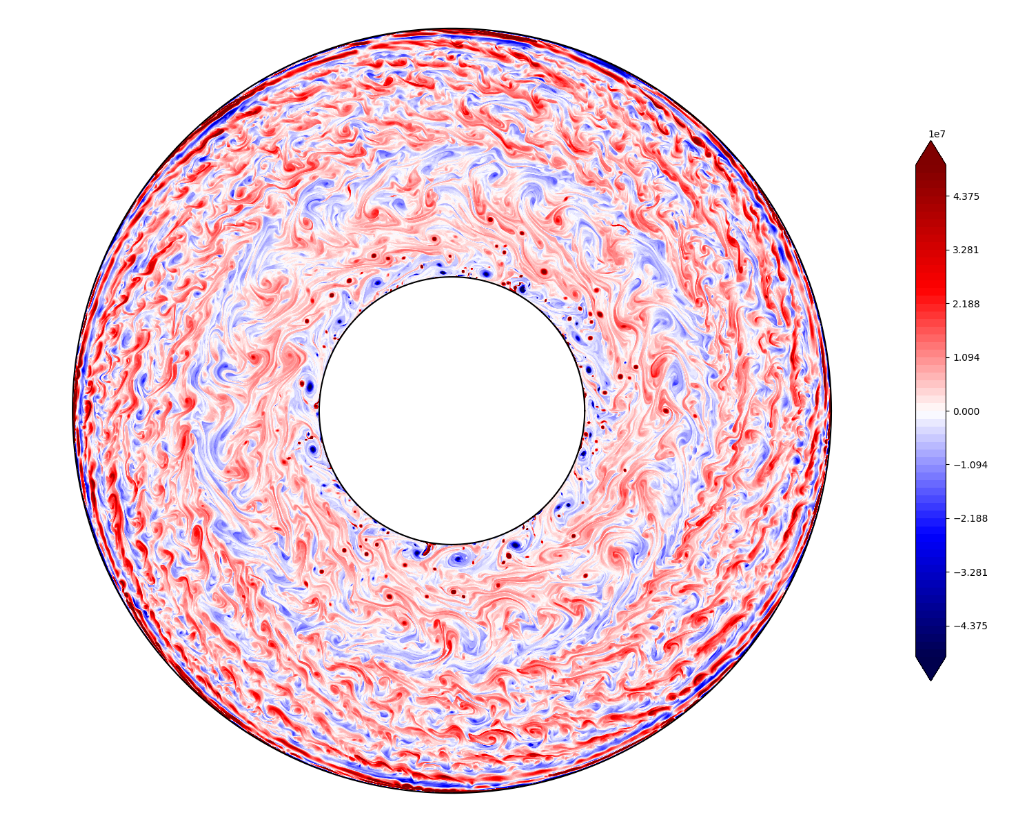CoreSat
Dynamics of Earth's core from multi-satellite observations

Earth's magnetic field plays a fundamental role in our planetary habitat, protecting us from the most harmful effects of cosmic radiation. The geomagnetic field has however been weakening dramatically in the South Atlantic over the past few decades. Satellite memory failures occur predominantly in this region and we are presently unable to predict the future development of the weak field anomaly. In the CoreSat project, funded by a 5 year ERC Consolidator Grant, we will use the latest high resolution magnetic observations, collected by ESA's Swarm satellite constellation, to test whether this field weakening is caused by a huge anticyclone in the planet's liquid metal outer core, that may be pushing magnetic flux out of the South Atlantic region. This involves developing new source separation and data assimilation algorithms, taking advantage of knowledge from space physics and geology, that will help better constrain the detailed structure of fluid motions in Earth's outer core.
For further details see the CoreSat project webpage